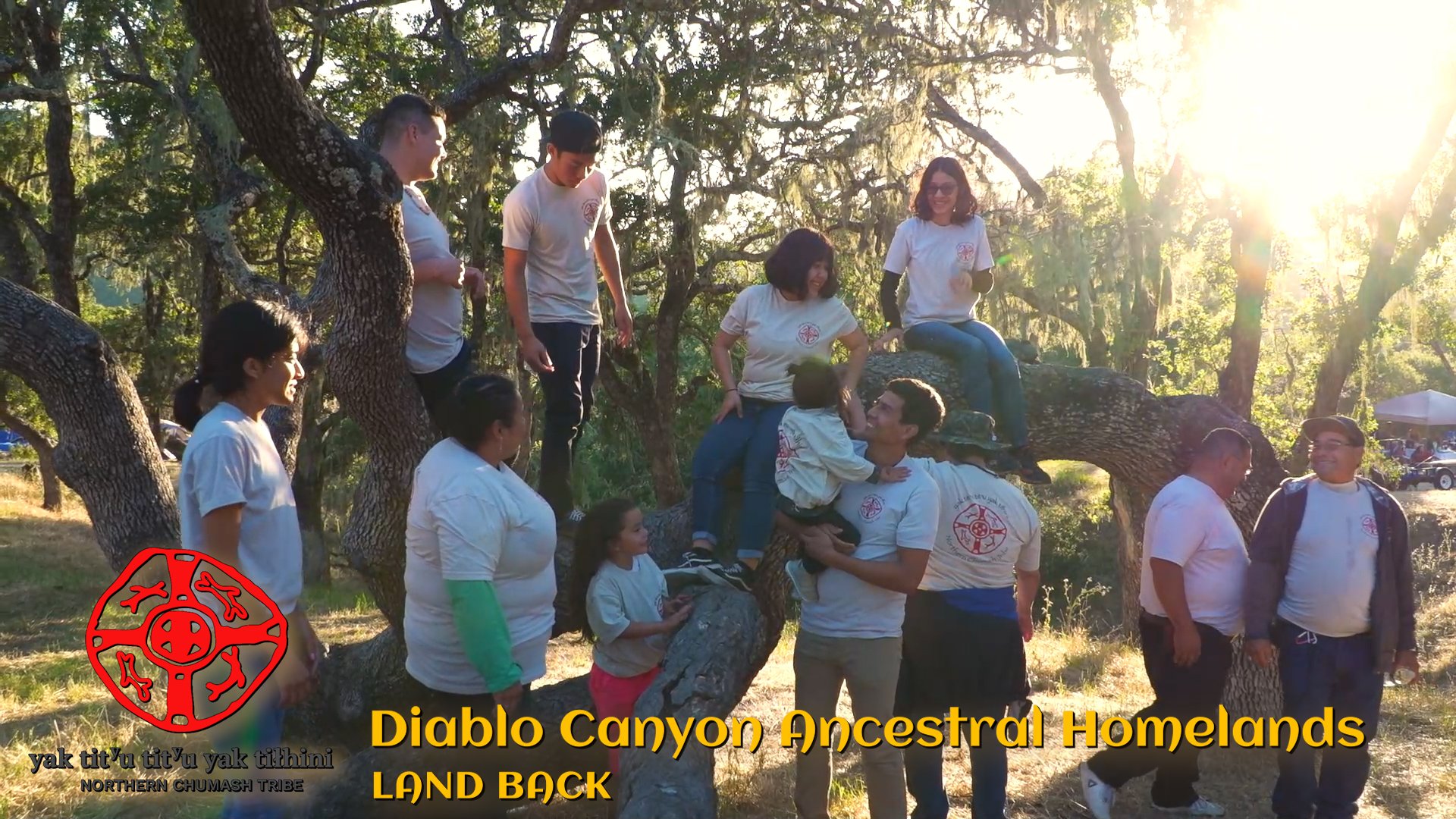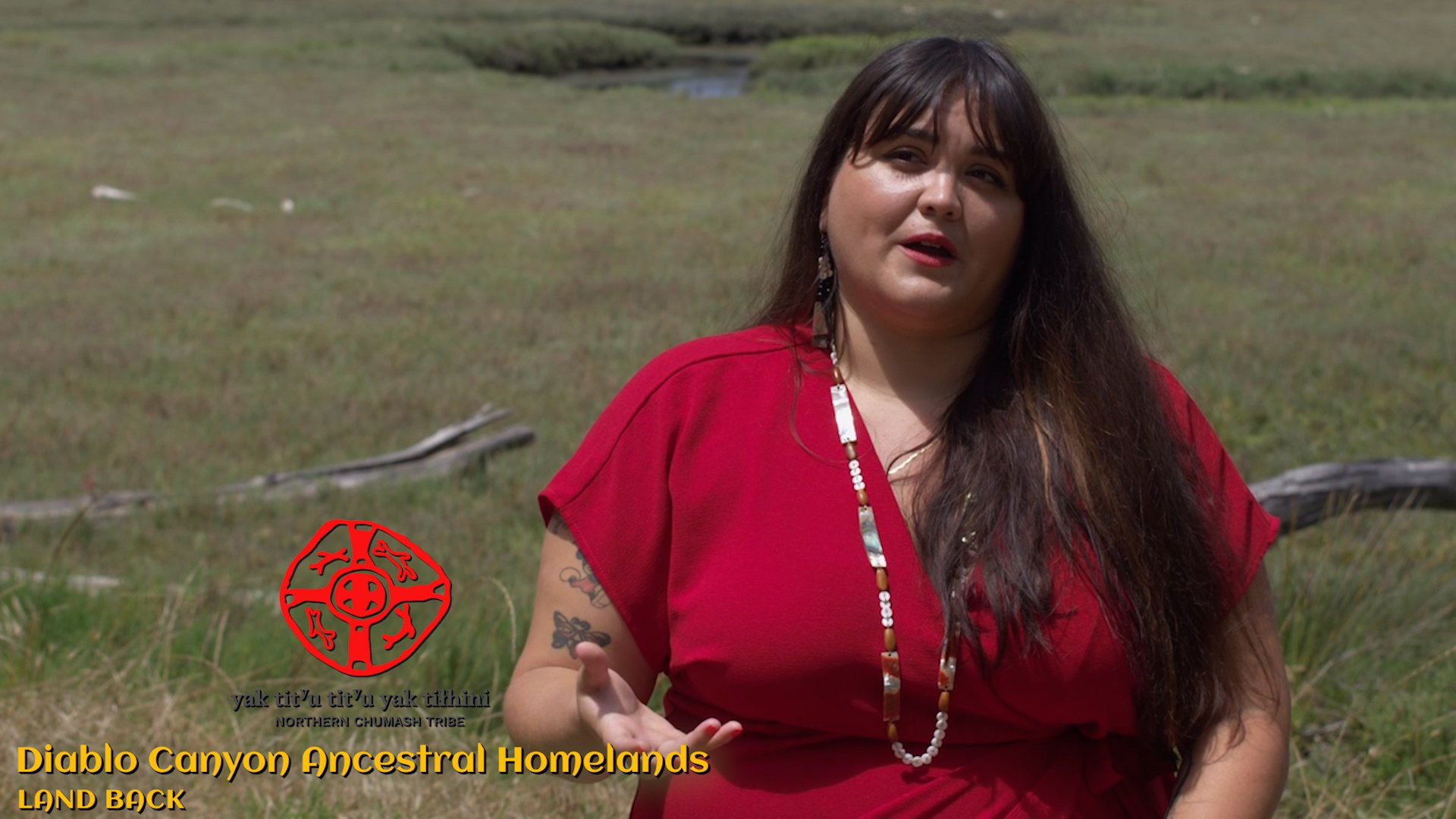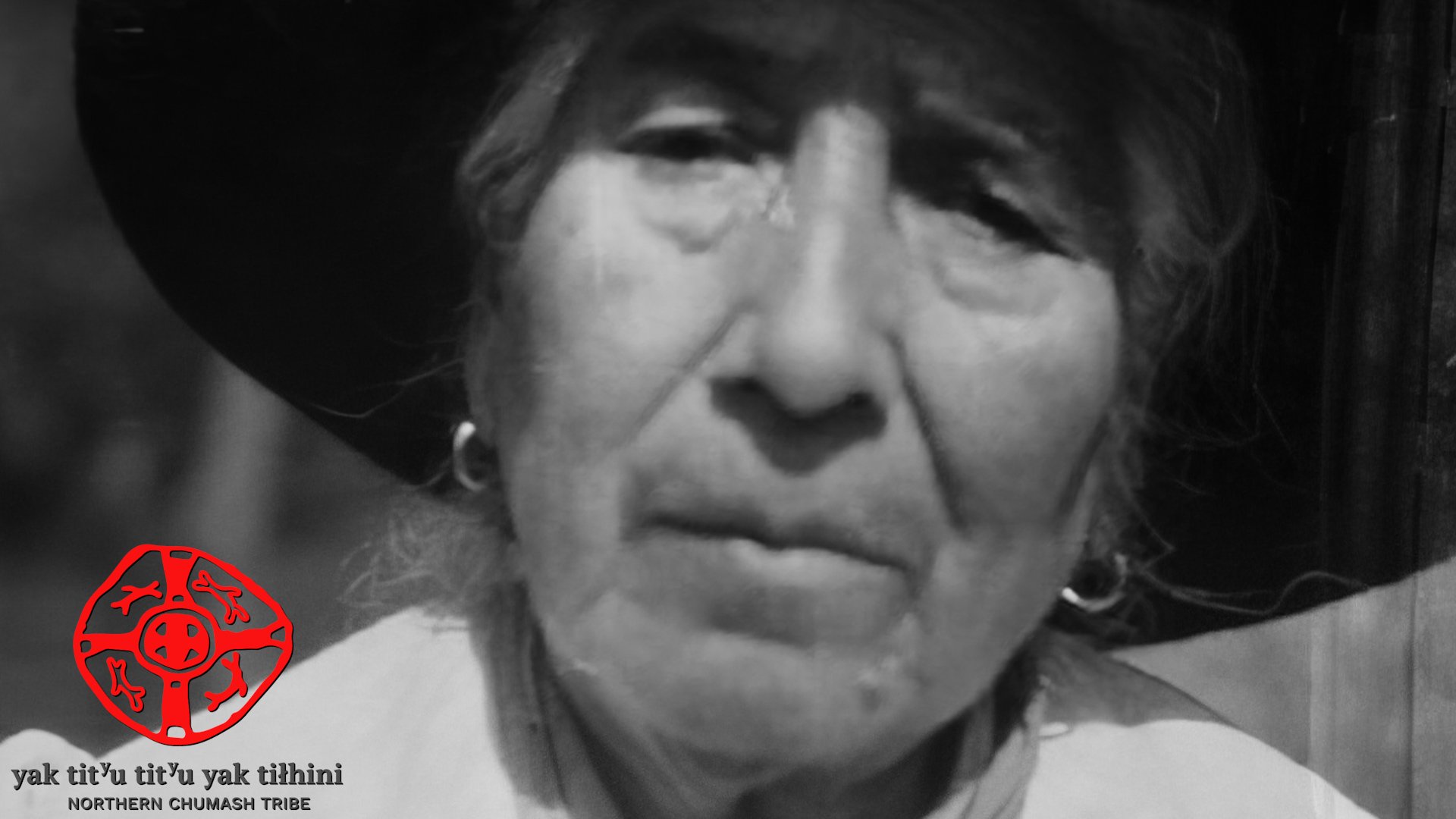yak titʸu titʸu yak tiłhini Lifeways
We employ a wide-ranging approach to promote public awareness of yak titʸu titʸu yak tiłhini (ytt) Northern Chumash for the benefit of all generations by advocating ytt lifeways education, Tribal events, language development; promoting site restoration, land stewardship and volunteerism; and supporting Tribal land acquisition and Tribal economic development.
Through partnerships with private, nonprofit, local, state, and federal entities, we are committed to building positive relationships and understanding of the yak titʸu titʸu yak tiłhini (ytt) Northern Chumash people and vision for the region.
WHO WE ARE - yak titʸu titʸu yak tiłhini (ytt) Northern Chumash Tribe
Diablo Ancestral Canyon Homelands Back (Sarah Biscarra Dilley, ytt Northern Chumash PhD Candidate)
Rosario Cooper
Our Grandmother, Rosario Cooper - the last fluent speaker of the tiłhini language
Rosario Cooper was a tiłhini woman who is widely known for the vital cultural and linguistic information she shared with linguist and ethnographer John P. Harrington. Rosario is recognized as the last speaker of the tiłhini language.
J.P. Harrington’s mission in life was to record Native American languages, which in the early 1900s were rapidly being lost. In the course of his work, he interviewed several indigenous persons who acted as language consultants. One of the people he interviewed was my great-grandmother Rosario. During the years 1912-1917, Harrington spent approximately six to seven weeks doing intensive field work with Rosario at her small and modest home east of Arroyo Grande, CA. Our Tribal name, yak titʸu titʸu yak tiłhini comes from her work that Harrington memorialized in more than ten thousand notes that are now archived at the Smithsonian Institution in Washington, D.C. Our name means, “The People of the Full Moon,” and this information is found in these notes. This language has also been called Obispeño, but that isn’t how we refer to our language, or to ourselves.
We know that Harrington’s main purpose of the interviews was to record languages, but when Rosario Cooper spoke she provided much more. Within her words, rich details about our family, extended kinships, places, and events are revealed. Rosario shared information about her daily activities, memories from her childhood and her long life. Recorded on wax cylinders, she left us beautiful traditional songs and now these songs are being sung by our Tribe again. Her documented work is a priceless historical treasure, and within it are still more discoveries to be made. Her work with J.P. Harrington saved our language from almost certain extinction, and for that we’ll always be grateful.
Rosario Cooper was born on October 7, 1845, and died on June 15, 1917, at Lopez Canyon near Arroyo Grande, California. Rosario had one child who survived infancy. This child was Francisco Olivas, who was father to several children and had many grandchildren. Two of Rosario’s great-granddaughters and a great many other descendants still reside in San Luis Obispo County and region.
Today, Rosario’s words continue to inform us of our history and instruct us for our future. She was an elder at the time of the interviews and in declining health, but because of Rosario and J. P. Harrington’s effort, we are able to study our language and strive for its reawakening. For that, yak titʸu titʸu yak tiłhini and all Chumash Peoples are forever indebted and enriched.
~ Mona Olivas Tucker, yak titʸu titʸu yak tiłhini (ytt) Northern Chumash Tribal Chairwoman
We are yak titʸu titʸu yak tiłhini (ytt) Northern Chumash Tribe
of San Luis Obispo County and Region
Our membership is comprised of families whose ancestry dates back to this one region for well over 10,000 years. We represent an unbroken chain of lineage, kinship, and culture. Many of our families have never lived anywhere else. It doesn’t matter where our members live, however, because the love of our homeland never ends. Our ongoing work towards Tribal preservation is to protect and promote our unique culture, elegant language, remarkable resources, and timeless traditional ways.
Indigenous Peoples Day (Wendy Lucas, ytt Northern Chumash Nonprofit Vice President of the Board)




